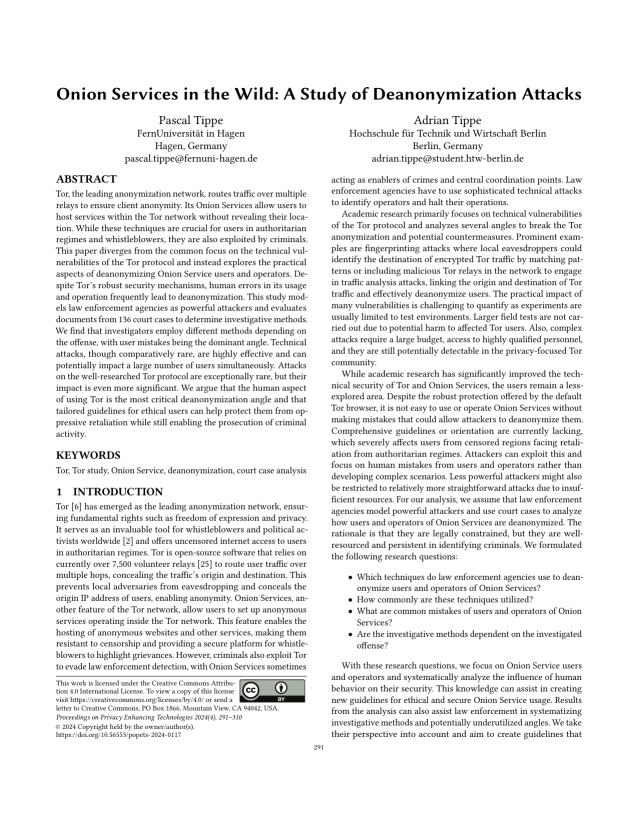Onion Services in the Wild: A Study of Deanonymization Attacks
Authors: Pascal Tippe (FernUniversität in Hagen), Adrian Tippe (Hochschule für Technik und Wirtschaft Berlin)
Volume: 2024
Issue: 4
Pages: 291–310
DOI: https://doi.org/10.56553/popets-2024-0117
Abstract: Tor, the leading anonymization network, routes traffic over multiple relays to ensure client anonymity. Its Onion Services allow users to host services within the Tor network without revealing their location. While these techniques are crucial for users in authoritarian regimes and whistleblowers, they are also exploited by criminals. This paper diverges from the common focus on the technical vulnerabilities of the Tor protocol and instead explores the practical aspects of deanonymizing Onion Service users and operators. Despite Tor's robust security mechanisms, human errors in its usage and operation frequently lead to deanonymization. This study models law enforcement agencies as powerful attackers and evaluates documents from 136 court cases to determine investigative methods. We find that investigators employ different methods depending on the offense, with user mistakes being the dominant angle. Technical attacks, though comparatively rare, are highly effective and can potentially impact a large number of users simultaneously. Attacks on the well-researched Tor protocol are exceptionally rare, but their impact is even more significant. We argue that the human aspect of using Tor is the most critical deanonymization angle and that tailored guidelines for ethical users can help protect them from oppressive retaliation while still enabling the prosecution of criminal activity.
Keywords: Tor, Tor study, Onion Service, deanonymization, court case analysis
Copyright in PoPETs articles are held by their authors. This article is published under a Creative Commons Attribution 4.0 license.

